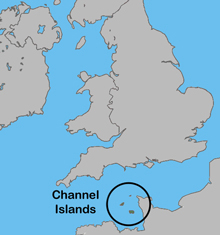
The United Kingdom’s new coalition government could lead to increased scrutiny on the Channel Islands, as Vince Cable, known to be against offshore finance centres, claims the mantle of business secretary.
Despite assurances from politicians from the Islands that there is no reason to be alarmed, tax critic and Professor of Law at Kings College London, Ann Redston, thinks otherwise.
“Both the Tories and the Liberal Democrats have said they are going to focus on tax avoidance more generally, so I do think there is going to be a bit of a spotlight thrown on the Channel Islands over the next 12 to 18 months,” she said.
The Channel Islands and the Isle of Man are part of the British Isles but not the United Kingdom, they have long been a destination that wealthy Brits flock to, as they seek to take advantage of its favourable tax rates, thus they are seen as tax havens.
In recent months HMRC have made strong moves to keep tax avoidance at a minimum, and thoughts are that the Con-Dem government will continue to crack down on offshore facilities.
However, financers in the Channels remain optimistic. Geoff Cook, chief executive at Jersey Finance said: “The Conservative approach has traditionally been pro financial services and pro business, with regards to the Liberal Democrats, Vince Cable has on occasion been openly critical of offshore centres such as Jersey. Our government has previously extended an invitation to him to visit Jersey to provide an accurate picture of the high quality of Jersey’s regulation, as well as Jersey’s benefit to the UK as a source of liquidity. I will be encouraging our government to once again extend an invitation to Mr Cable in the hope that we can explain the valuable role that Jersey plays in global financial services.”
In fact, Charles Parkinson, Guernsey’s Treasury and Resources Minister, feels that the new government can be shown the Channel Islands are a boon not a bane: “I think we have ample evidence now that the cost to the UK exchequer is not as great as they thought it was and the benefit to the City of London is real. We’re talking about £325 billion of liquidity flowing into the city from these islands,” he said.

